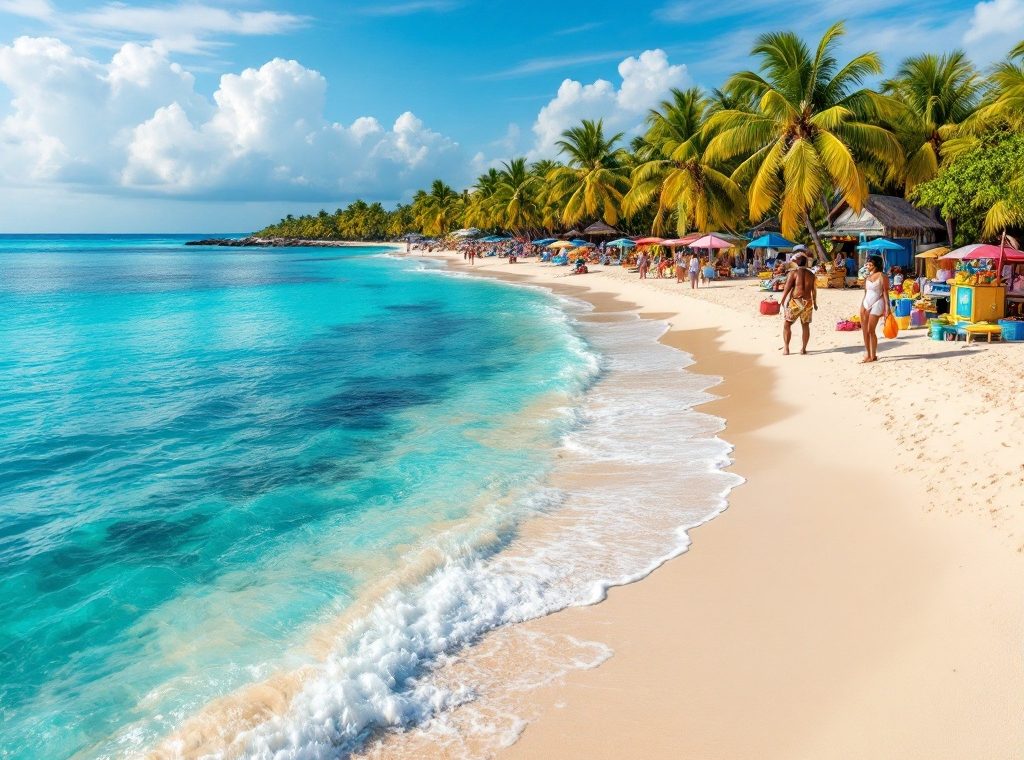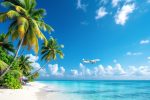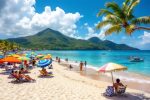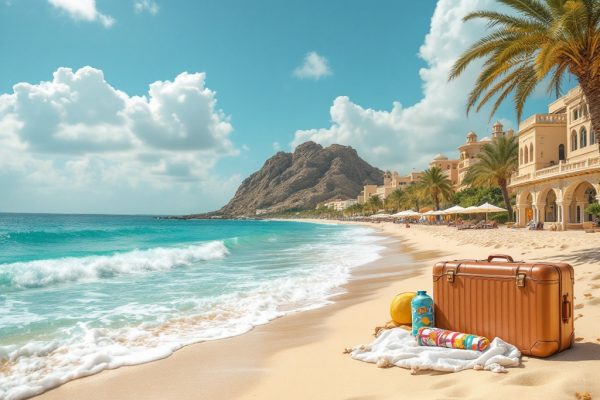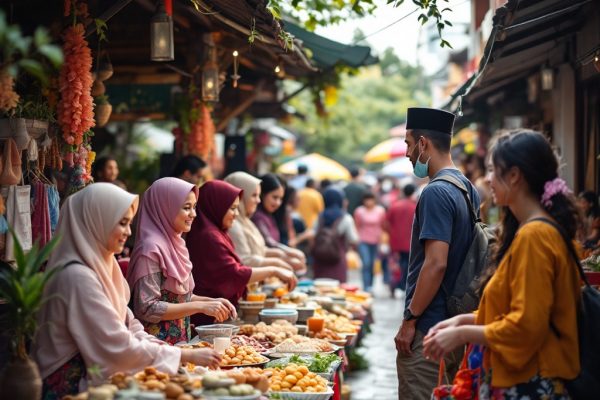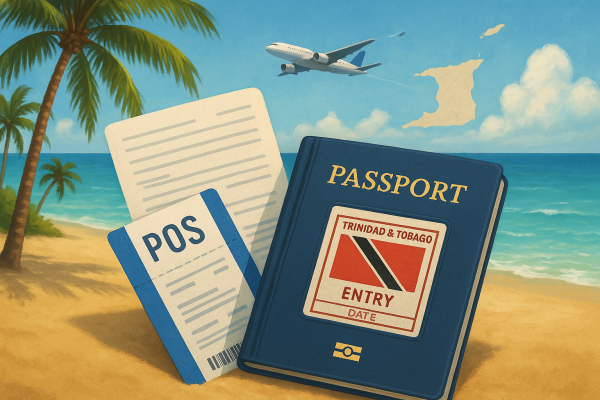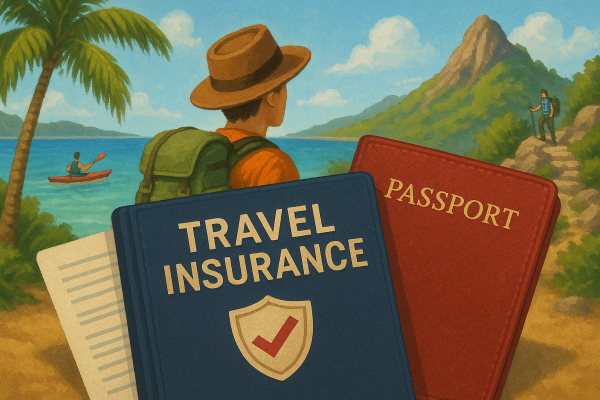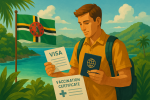Bahamas and Tourism: A Guide to Responsible Travel Practices
Dreaming of pristine beaches and vibrant culture? Discover the beauty of the Bahamas while making a positive impact! Learn how responsible travel can protect this island paradise, from supporting local businesses and communities to minimizing your environmental footprint. Explore eco-friendly adventures, immerse yourself in Bahamian traditions, and contribute to conservation efforts. Start planning your unforgettable, sustainable Bahamian getaway today!
Important information
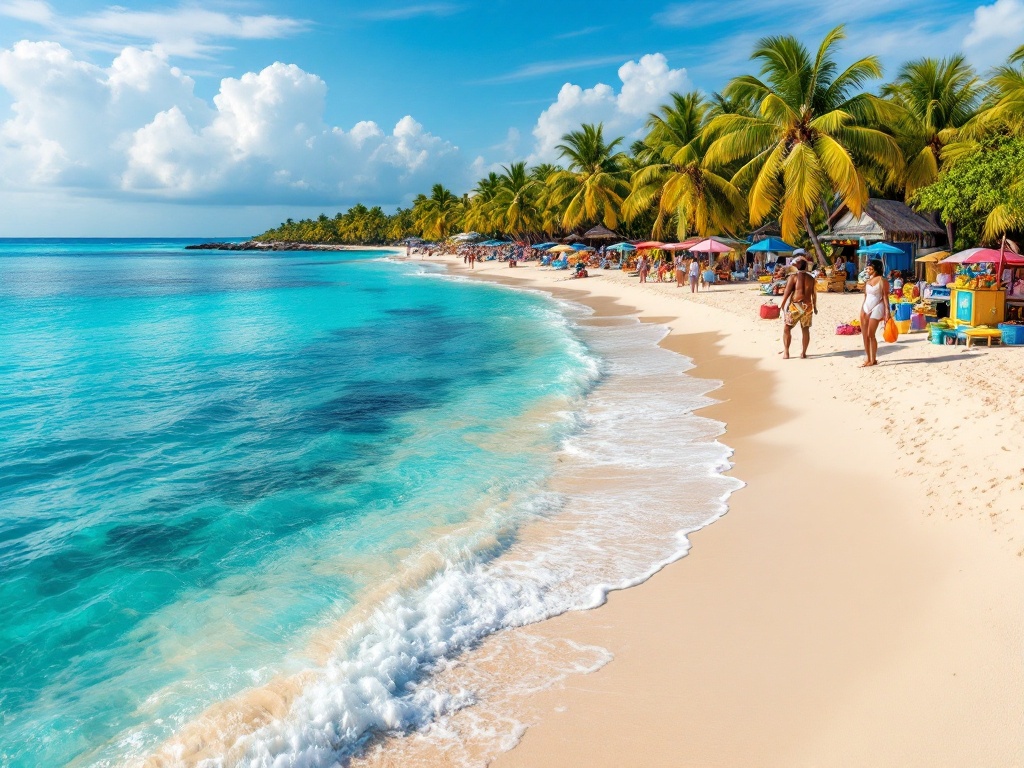
- Support local communities by purchasing local products, dining at local restaurants, and participating in community tours. This contributes directly to the Bahamian economy.
- Minimize environmental impact by using reusable bags and water bottles, reducing waste, conserving energy and water, and choosing reef-safe sunscreen.
- Respect Bahamian culture by learning about local customs, dressing modestly at religious sites, and engaging respectfully with locals.
- Engage in responsible wildlife interactions by observing animals from a distance, avoiding feeding or touching them, and choosing tour operators with sustainable practices.
- Contribute to marine conservation by participating in beach cleanups, supporting coral reef restoration projects, and using reef-safe sunscreen to protect the coral.
Understanding Responsible Travel in the Bahamas
Embrace responsible travel in the Bahamas by minimizing your impact on the environment and supporting local communities. Respect cultural nuances and bolster local businesses by purchasing souvenirs and dining at local restaurants. These actions contribute directly to the islands’ prosperity. Lighten your environmental footprint by using reusable bags and water bottles, and removing excess packaging before you travel. Minimize waste whenever possible, as every effort counts.
Respect Local Culture
Respect the local culture and natural beauty. Sustainable tourism is essential; participate in beach cleanups or donate to conservation groups to make a valuable contribution. Familiarize yourself with local customs before your trip. Dressing respectfully at religious sites demonstrates cultural appreciation and is a simple yet effective way to show respect.
Protect the Environment
Minimize your impact on the environment. Use reusable bags and water bottles, and remove excess packaging before you travel. Minimize waste whenever possible, as every effort counts.
Support Local Businesses
Support local communities. Purchase souvenirs and dine at local restaurants. These actions contribute directly to the islands’ prosperity.
Minimize Waste
Minimize waste whenever possible, as every effort counts. Every small step can make a big difference for the environment.
What is Responsible Travel?
Responsible travel minimizes negative impacts, protecting both the environment and local culture while supporting sustainable development. Travelers learn to make conscious decisions, considering the effects of their actions for everyone’s benefit.
Why Responsible Travel Matters in the Bahamas
Responsible travel is crucial for destinations like the Bahamas. It minimizes negative environmental, social, and economic impacts, while creating economic opportunities and improving local well-being. It also fosters better working conditions and broader access to the tourism sector, connecting visitors with local cultures and preserving natural and cultural heritage for future generations.
With its tourism-dependent economy and fragile ecosystem, the Bahamas must prioritize responsible travel for a sustainable future. This approach protects the environment and respects local traditions.
This approach also contributes to the local economy, ensuring long-term tourism viability.
Sustainable Tourism and Its Importance
Sustainable tourism is crucial for the Bahamas, balancing environmental protection with economic growth to benefit local communities. This approach safeguards the islands’ unique ecosystems and culture while encouraging responsible choices. It empowers local economies and preserves natural resources for future generations. It involves:
- Protecting natural habitats, such as coral reefs and mangrove forests.
- Minimizing pollution from tourism activities.
- Supporting local businesses and communities.
- Educating tourists about responsible travel.
- Conserving resources like water and energy.
Benefits of Sustainable Tourism for the Bahamas
Sustainable tourism offers numerous advantages for the Bahamas. It bolsters local businesses and creates economic opportunities. It also plays a crucial role in preserving the islands’ natural resources, protecting diverse marine life and fragile coral reefs. Furthermore, this eco-conscious approach safeguards the Bahamas’ unique biodiversity. This makes it a beneficial situation for both the economy and the environment.
Economic Benefits
- bolsters local businesses,
- creates economic opportunities.
Environmental Benefits
- preserves the islands’ natural resources,
- protects diverse marine life and fragile coral reefs,
- safeguards the Bahamas’ unique biodiversity.
How to Practice Sustainable Travel
- Opt for sustainable seafood options.
- Conserve energy by unplugging electronics.
- Shop with reusable bags.
- Keep our environment clean by avoiding littering.
- Hydrate with a reusable water bottle, purifying tap water when needed.
- Minimize waste and shed excess packaging before trips.
- Back local businesses and embrace cultural diversity.
- Protect endangered species.
The Bahamas’ Commitment to Conservation
The Bahamas is committed to protecting its unique wildlife and marine ecosystems. The nation actively combats climate change and champions sustainable practices, aligning with global conservation efforts. Several Bahamian sustainability initiatives include establishing marine protected areas and running conservation programs for endangered species. Numerous community-led ecological projects, often collaborations between the government and local groups, promote renewable energy, waste reduction, and responsible tourism. These vital initiatives aim to safeguard the islands’ natural resources for future generations while offering educational opportunities for both locals and tourists to learn about sustainability and contribute to global conservation efforts.
Biodiversity and Marine Life Protection
The Bahamas is dedicated to preserving its diverse marine ecosystems, including vital habitats such as coral reefs, seagrass beds, and mangrove forests. The Bahamas National Trust oversees the country’s national parks and protected areas, safeguarding crucial habitats for numerous marine species like conch, lobster, and sea turtles. The Bahamas also champions sustainable fishing practices to ensure future fish populations remain healthy. Ongoing coral reef restoration projects aim to revitalize damaged reefs, while scientific research focuses on studying marine life and developing effective conservation strategies. These initiatives strive to maintain a thriving ocean for generations to come.
Climate Change Initiatives
The Bahamas is actively confronting the serious threat of climate change with several initiatives to protect its unique environment. Marine protected areas are being established to safeguard vital ocean ecosystems. Simultaneously, conservation programs are helping protect endangered species. Community-led projects are also contributing, focusing on practical solutions like promoting renewable energy and waste reduction. These projects also champion responsible tourism, a key element of a sustainable future. Collaboration between the government and local organizations strengthens these initiatives. Their combined efforts aim to protect natural resources, educate residents and tourists about sustainability, and preserve the beauty of the Bahamas for future generations.
Community Engagement and Local Support
Support local Bahamian communities by:
- purchasing authentic Bahamian crafts,
- dining at local restaurants,
- joining community tours.
Connect directly with Bahamians through the People-to-People program for a rich cultural exchange. Choose accommodations that reinvest tourism revenue back into the community to support local jobs and sustainability.Bahamian conservation thrives on community involvement. Local participation fosters a sense of ownership over natural resources and promotes sustainable practices. Empowering workshops and ecotourism initiatives provide economic and social benefits for residents while encouraging environmental stewardship. This collaborative approach improves conservation efforts and enhances the lives of local Bahamians.
Supporting Local Communities and Businesses
Engage with the local community and culture while traveling by supporting local businesses. Savor authentic meals at local restaurants and purchase unique, locally-made products, directly contributing to the livelihoods of the residents. Participate in community-based tourism initiatives, interacting with locals and fostering cultural exchange, enriching both your travel experience and the community you visit. Choose accommodations that prioritize hiring local staff and employ sustainable practices, ensuring your spending directly benefits the community. For example, purchasing handmade crafts and artwork directly supports local artisans. Consider impactful programs, such as the People-to-People program, which fosters community-based tourism and contributes to the economic growth and development of destinations like the Bahamas.
Community Involvement in Conservation Efforts
Bahamian communities play a vital role in conservation efforts. Their involvement fosters a sense of ownership and encourages sustainable practices, empowering locals through opportunities like workshops and ecotourism. These initiatives offer both economic and social advantages while promoting environmental stewardship. This collaborative approach improves conservation outcomes and enhances residents’ quality of life. Locals also contribute significantly to sustainable tourism by preserving local culture and running educational programs. By participating in tourism development decisions, they ensure their voices are heard and that tourism directly benefits their community.
Community Involvement in Conservation
Bahamian communities are essential to conservation efforts. Their active participation cultivates a sense of responsibility and promotes sustainable practices. Empowerment initiatives, such as workshops and ecotourism opportunities, provide economic and social benefits while fostering environmental stewardship.
Locals’ Role in Sustainable Tourism
Local communities play a crucial role in sustainable tourism. They preserve local culture and traditions through educational programs. Their involvement in tourism development decisions ensures their voices are heard, leading to tourism that directly benefits their community.
Eco-Friendly Travel Practices
Travel light and smart by packing reusables like water bottles, shopping bags, and food containers. This simple act minimizes waste and reduces your environmental footprint. Conserve energy by turning off lights and unplugging electronics—every little bit counts. Save water by taking shorter showers and reusing towels. Report any leaks to hotel staff immediately, even small drips can waste a surprising amount of water. Don’t forget to be mindful of water usage while brushing your teeth.
Embrace Greener Transportation
Walk, cycle, or utilize public transport whenever possible. If you need a car, consider a hybrid or electric rental.
Eco-Friendly Boat Tours
For boat tours, seek out eco-friendly operators that prioritize fuel efficiency and protect marine life.
By making sustainable travel choices, you can enjoy your trip while preserving our planet.
Reducing Plastic Waste and Energy Consumption
Reduce your plastic footprint by bringing reusable bags, water bottles, and food containers. This not only helps the environment but also saves you money.
Conserve energy by turning off lights and unplugging electronics when not in use. These small changes collectively make a big impact on protecting our planet.
Water Conservation Measures for Travelers
- Conserve water by taking shorter showers and reusing towels.
- Turn off the tap while brushing your teeth and promptly report any leaks.
- Carry a refillable water bottle instead of buying disposable plastic ones.
- If needed, purify your tap water.
Choosing Low-Impact Transportation Options
Minimize your environmental impact while traveling by exploring these eco-friendly options:
- Embrace green transportation: walk, cycle, or utilize public transport.
- Opt for eco-friendly rentals: choose an electric or hybrid car.
- Support local businesses: use taxis or ferries to contribute to the local economy.
Contributing to Marine Conservation
Coral reefs are vital marine ecosystems, supporting a vast array of marine life as both habitat and food source. Numerous species depend on these reefs, which also protect coastlines from erosion and storms. Their intricate structures offer shelter to fish, crustaceans, and other organisms, fostering crucial biodiversity that maintains ocean health. Unfortunately, certain sunscreen chemicals contribute to coral bleaching. Reef-safe sunscreens, formulated without harmful chemicals like oxybenzone and octinoxate, offer a solution. By choosing reef-safe sunscreen, especially in the Bahamas, you can enjoy the beaches while protecting these vibrant ecosystems. Many Bahamian organizations focus on marine conservation, offering tourists opportunities to participate.
Ways to contribute to marine conservation in the Bahamas:
- join beach cleanups,
- assist with coral reef restoration,
- learn through educational initiatives.
Volunteering or donating:
directly contributes to marine protection, safeguarding marine life and habitats for a healthy, sustainable future.
Understanding Coral Reefs and Their Importance
Coral reefs are vibrant underwater ecosystems built by coral polyps using calcium carbonate. These vital structures provide food and shelter for a multitude of marine species. However, human activities, such as pollution and overfishing, severely threaten these delicate ecosystems. Coral reefs also play a critical role in coastal protection and bolster local economies through tourism and fishing, making their preservation essential.
Using Reef-Safe Sunscreen to Prevent Coral Bleaching
Reef-safe sunscreen helps protect coral reefs from harmful chemicals found in many conventional sunscreens. These chemicals can cause coral bleaching, damaging these vital ecosystems. Reef-safe alternatives offer a solution, helping maintain healthy oceans and preserving the vibrant coral and diverse marine life. Choosing reef-safe sunscreen makes a real difference in protecting these underwater worlds. So, switch to reef-safe sunscreen and help protect our oceans.
Participating in Marine Conservation Programs
Discover the beauty of the Bahamas and contribute to its preservation through immersive, hands-on conservation programs. Explore the vibrant marine life and crucial ecosystem protection efforts by diving into coral reef restoration, monitoring majestic sea turtles, or participating in coastal cleanups. Numerous local organizations and tour operators offer these experiences.
Experience Ecotourism in the Bahamas
Experience the magic of the Bahamas through respectful wildlife encounters that benefit both animals and their environment. Create unforgettable memories swimming with the famous Exuma pigs or snorkeling with sea turtles. Support conservation efforts by visiting national parks such as Lucayan, Inagua, or the Exuma Cays Land and Sea Park. These protected areas preserve the islands’ natural beauty and vital habitats, offering enriching educational experiences and exploration. By choosing responsible tours, you contribute to the overall health of the Bahamian ecosystem and help protect these natural treasures.
Engaging in Responsible Wildlife Interactions
Observe wildlife from afar, respecting their space.
Refrain from feeding them, as this can disrupt their natural behaviors.
Avoid any physical interaction, including touching.
Skip the flash photography to prevent startling these creatures.
Opt for tour operators committed to responsible wildlife practices.
Consider supporting local conservation efforts, which are vital for protecting both the animals and their homes, ensuring their continued survival.
Visiting Protected Areas and National Parks
The Bahamas National Trust Parks protect a variety of ecosystems, from forests and wetlands to coral reefs. Your visit directly supports their preservation, allowing you to experience nature while contributing to conservation. These parks offer diverse activities, including wildlife viewing, hiking, and snorkeling. Explore the caves at Lucayan National Park, or discover the historic lighthouse and beaches at Peterson Cay National Park. The Exuma Cays Land and Sea Park offers a sanctuary teeming with marine life.
Cultural Respect and Education
Immersing yourself in different cultures elevates any trip. In the Bahamas, discovering local customs fosters mutual understanding and appreciation. Educational programs provide valuable insights into Bahamian history, art, music, and cuisine through guided tours, workshops, and cultural performances. Respectfully engaging with local communities supports their heritage while enriching your own travel experience. Experiencing the Bahamas through its culture offers a richer, more meaningful journey.
Cultural Immersion
Explore the heart of the Bahamas by immersing yourself in the local culture. Discover the traditions and customs of the islands, fostering mutual understanding and appreciation between visitors and locals.
Educational Opportunities
Gain valuable insights into Bahamian history, art, music and cuisine through a range of educational programs. Participate in guided tours, workshops and cultural performances to deepen your understanding of the islands’ rich heritage.
Community Engagement
Respectfully engage with local communities to support their heritage and contribute to their well-being. By interacting with locals, you’ll not only enrich your own travel experience but also help preserve the unique cultural fabric of the Bahamas.
Meaningful Travel
Transform your trip into a more meaningful experience by exploring the Bahamas beyond the typical tourist attractions. Immersing yourself in the local culture offers a richer and more rewarding journey, leaving you with lasting memories and a deeper appreciation for the islands.
Respecting Cultural Differences
Experience Bahamian Culture
Immerse yourself in local traditions to enrich your trip.
Dress Respectfully
Dress modestly, particularly when visiting religious sites, as a sign of respect.
Engage with Locals
Interact with Bahamians to foster understanding and build connections.
Savor Local Cuisine
Don’t miss out on the local cuisine. Try the conch salad, a Bahamian specialty.
Respect Local Customs
Be mindful of local customs and traditions throughout your travels.
Educational Programs for Tourists
Educational programs in the Bahamas immerse tourists in the islands’ rich cultural heritage. These programs offer guided tours, workshops, and interactive exhibits. Visitors learn about Bahamian history, traditions, and cultural practices, fostering respect and appreciation. For example, they might explore traditional crafts like basket weaving or batik making. They can also discover the vibrant history of Junkanoo, a colorful street parade with elaborate costumes and music. These enriching experiences cultivate a deeper understanding of Bahamian culture and encourage responsible tourism. Expanding these programs to reach a wider audience will further contribute to cultural preservation.

